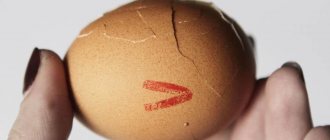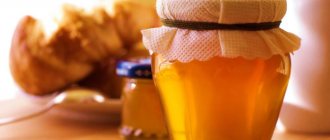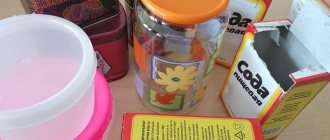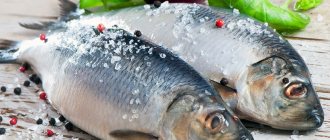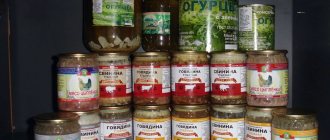Boiling kills all germs, which is why boiled water is considered safe for health by many. In addition, before brewing tea, the water has to be boiled in any case. The question arises: what to do with the remaining boiled water in the kettle? Can it be stored for later use?
Some housewives pour the remaining boiled water from the kettle into a jar and little by little use it for drinking. The good stuff shouldn’t go to waste; besides, electricity was wasted on boiling. And many people consider it irrational to simply pour boiled water into the sink. How correct is this approach?
Are there any expiration dates?
Boiled water, like any other water that is used for drinking and cooking, has strictly defined expiration dates.
This is due to the fact that heat treatment changes its structure and properties.
And although the boiling process itself kills dangerous microorganisms, boiled water is more susceptible to re-infection with viruses and bacteria.
What container to store water in?
The shelf life of a liquid is greatly influenced by the container in which it is poured.
You should be careful when handling plastic containers; they can be toxic and at high temperatures begin to release toxic substances into the liquid. Therefore, to store water, you need to choose plastic of a certain class - polyethylene terephthalate, specially designed for food products. Enameled containers are best suited for storing boiled liquid. It is important to keep the container closed. It is better to keep filtered water in glass bottles. In general, the best means for storing any liquids intended for consumption is glass containers with a cork lid. Plastic lids release toxins and are therefore not recommended for such purposes.
Clay and ceramic dishes also work well. Any material that does not react with the liquid and does not release additional substances into its composition is well suited for storing water.
Source
Can I use it after the expiration date?
After the expiration date of water, it is not allowed to be used for drinking or cooking. After boiling, it is able to absorb pathogens, viruses and bacteria from the air.
Use after long-term storage may cause:
- dyspepsia;
- diarrhea;
- intestinal infections.
Cool boiling water is considered the cleanest and healthiest - water immediately after boiling. As soon as it begins to cool, there is an increasing risk of infection by microorganisms. In order not to cause harm to health, it is necessary to throw out expired water and stock up on new water.
Important! It is not recommended to use boiled water for cooking after the expiration date, since repeated heating to 100°C increases the concentration of impurities, including heavy metals.
Types of water
Despite the fact that outwardly all water is the same, it often has different origins and therefore different properties.
For example, bottled water is most often obtained from artesian springs. These are layers of internal water located between layers of hard rock. This water is filtered, disinfected, enriched with necessary substances and poured into containers. After opening the bottle, this water can be stored in the refrigerator with the lid screwed on for no more than three days.
Mineral water is usually enriched with beneficial salts and minerals. It is divided into medical and dining rooms. The latter can be drunk daily. The shelf life of such water is much longer. It can be stored in the refrigerator for up to six months. And in unopened form, some products can last for more than a year. It is better to drink open mineral water within a week.
Most often in people's lives there is a liquid that flows out of a water tap. It is usually purified and contains a small amount of chlorine, which prevents the growth of harmful bacteria. Health-conscious people try to filter such water to get rid of harmful substances. Not all experts approve of this decision. For the most part, the composition of tap water is controlled and all substances included in its composition are within normal limits and cannot cause harm to health. The filter, in turn, along with harmful substances, may also retain useful components necessary for the body.
Bottled water that has been left open for more than 4 days or simply water whose quality is in doubt can be removed from harmful substances by boiling.
How to store and for how long?
At home you can use:
- glassware (jugs, bottles, etc.);
- enamel dishes (kettles, pots, etc.);
- ceramic or clay containers;
- products made of high-quality heat-resistant plastic (polyethylene terephthalate), which are marked “PET”.
It is best to store water in glass bottles with a cork cap.
Basic Rules:
Storing water for more than a day is allowed, but provided the air temperature does not exceed 4-5°C.- If the room is hot, you need to change the boiling water more often - every few hours.
- The material from which the water container is made should not react with liquids when heated. For example, plastic containers without the “PET” mark will allow particles of the material to penetrate into the water, which will lead to its toxicity.
Where is the best place to store it?
Ideal conditions for storing water are a closed enamel or glass container and low temperatures. Only a silver container is better for storage, but where can you get one? Therefore, after boiling, pour the water into a glass or enamel container. And after it cools down, put it in the refrigerator.
It is not recommended to pour into plastic bottles, especially hot water. No matter how good plastic is, it cannot be compared with glass or enamel in terms of safety.
In various institutions
According to SanPiN 2.4.2.2843-11 for educational and health care children's institutions (including preschool educational institutions), water must be stored in enamel kettles. At the same time, it is forbidden to heat it in pans and other dishes not intended for this purpose.
After boiling for a long time (from 5 minutes) in an electric heater, it is immediately placed in teapots, where it cools. SanPiN determines measures for storing boiled water only for children's institutions.
In other (“adult”) organizations, SanPiN 2.1.4.1116-02 applies. These rules apply to all types of drinking water:
- Storage no more than 24 hours.
- Air temperature from 5 to 20°C.
- Closed storage containers.
- Avoid exposure to direct sunlight.
Storage rules
Boiled water, like raw water, is used for drinking and cooking. Like other products, it has strictly defined expiration dates. During heat treatment, a change in the chemical composition and properties occurs. Heat treatment destroys bacteria, but as a result, the water is more susceptible to subsequent contamination, so it should not be stored for a long time.
Deadlines
Depending on the temperature at the storage location, the timing may vary:
- Room conditions - maximum 24 hours .
- In the refrigerator - no longer than 3 days . In the cold, the rate of development of microorganisms is reduced.
SanPin standards 2.4.2.2843-11 strictly regulate the storage periods of boiled water for kindergartens and other institutions. In kindergartens, water can only be used within 3 hours from the moment of preparation. For other organizations, the maximum expiration date is set at 1 day .
Conditions
In order for water to retain its properties longer after boiling, the following conditions must be provided:
- The container must be hermetically sealed.
- Avoid exposure to direct sunlight. In this case, being in a room with diffused light is allowed.
- It can be stored for longer than 24 hours only at a temperature not exceeding +4°С-+5°С . A refrigerator is ideal.
- If the room temperature is high, the water needs to be changed every few hours.
- The material of the vessel must be inert to water (not enter into chemical reactions). In particular, inertness must be maintained upon contact with hot water. Regular plastic without the “PET” mark can release toxic substances when heated.
The following can be used as containers at home:
- Glass vessels (jars, bottles, jugs, etc.).
- Ceramic containers.
- Enameled dishes (pots, bowls, teapots, etc.).
- Products made from special food-grade plastic that is resistant to high temperatures. The container must be marked “PET”.
The best option for storing at home is glass bottles with airtight lids. It is better that the lids are made of balsa wood.
Use after expiration date
Expired boiled water should not be used for cooking or drinking. As a result of heat treatment, it begins to more actively absorb pathogenic bacteria and viruses from the environment. As a result, after some time it can become even more dangerous than in its raw form.
Drinking boiled water that has expired is fraught with the following consequences:
- Dyspepsia.
- Intestinal infections.
- Diarrhea.
The safest and cleanest water is immediately after boiling . During cooling and subsequent storage, it can become contaminated with bacteria. Therefore, you should not drink expired water. In addition, using such water for cooking is even more dangerous, since repeated heating to +100°C leads to an increase in the concentration of heavy metals and other toxic substances.
On the organization of drinking regime in educational organizations
Rospotrebnadzor reminds that students must be provided with free access to drinking water during the entire time of their stay in an educational organization.
In accordance with the requirements of the new sanitary rules 2.3/2.4.3590-20 “Sanitary and epidemiological requirements for the organization of public catering of the population,” the drinking regime for children in an educational organization must be organized through the installation of stationary drinking fountains, devices for dispensing water, dispensing packaged drinking water or using boiled drinking water. The fountain bowl must be cleaned daily using detergents and disinfectants.
When organizing a drinking regime using bottled water, the educational organization must be provided with a sufficient amount of clean dishes (glass, earthenware - in the dining room and disposable cups - in educational and sleeping areas), as well as separate marked trays for clean and used glass or earthenware; containers - for collecting used disposable tableware.
When using installations with dosed bottling of drinking water packaged in containers, it is necessary to replace the container as needed, but at least once every 2 weeks.
In the absence of a centralized water supply in a populated area, the organization of the drinking regime for students is carried out only using water packaged in containers, subject to the organization of control over the bottling of drinking water.
Bottled water supplied to educational organizations must have documents confirming its origin, quality and safety.
Source
Why doesn't water in plastic bottles spoil?
Why doesn't bottled water go bad? This question interests many. In fact, the long shelf life is due primarily to the fact that pre-sterilized water is poured into sterile containers and hermetically sealed. The bottle is used only once and cannot be cleaned.
Interesting materials:
How many liters of milk does a camel give? How many liters are in 1 kg of solvent R4? How many liters are in 1 square meter? How many logical hard drives are there in a computer? How many elk calves does a moose mother give birth to? How much rice to put on pilaf? How much mAh does iPhone SE 2016 have? How much semolina for two glasses of milk? How much honey does one hive produce? How many months are there in August?
